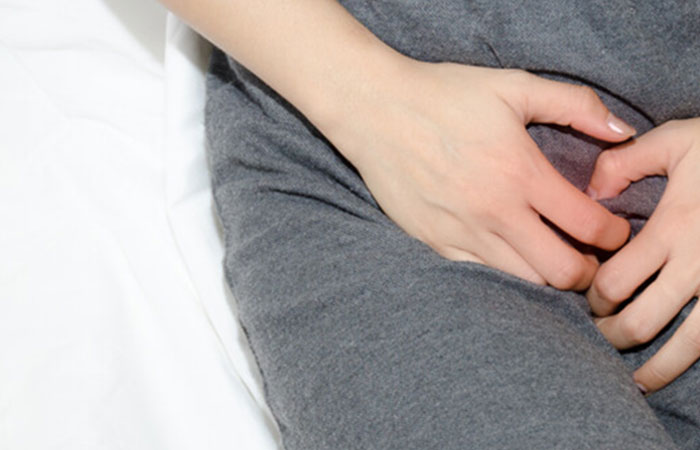
Swollen vagina or vulva refers to an increase in size or discomfort in the female genital area. This can be caused by various factors such as infection, injury, hormonal changes, or an allergic reaction. If you are experiencing persistent swelling or discomfort, it is recommended to see a doctor for proper diagnosis and treatment.
A swollen vagina or vulva can cause symptoms such as pain, itching, burning, and redness. The specific cause of the swelling will determine the appropriate course of treatment. For example, if the swelling is caused by an infection, antibiotics may be prescribed. If the swelling is due to an allergic reaction, avoiding the allergen and using over-the-counter antihistamines may be recommended. In some cases, a swollen vagina or vulva may be a symptom of a more serious underlying condition, such as a sexually transmitted infection or gynecological cancer, and prompt medical attention is necessary.
Causes of a swollen vagina or vulva
There are several causes of a swollen vagina or vulva, some of which include:
Infection:This can be caused by bacteria, yeast, or a sexually transmitted infection (STI).
Infections can cause swelling and discomfort in the vulva. Some common infections that can lead to vulvitis (swelling of the vulva) include:
Hormonal changes: Hormonal fluctuations, such as those experienced during pregnancy or menopause, can cause the vulva to swell.Hormonal changes can cause swelling and discomfort in the vulva. Some common hormonal changes that can lead to vulvitis include:
In some cases, vulvitis caused by hormonal changes can be treated with over-the-counter creams or ointments, hormonal therapies, or other medications. If you are experiencing persistent or worsening symptoms, it is important to see a doctor for proper diagnosis and treatment.
Allergic reaction: A reaction to products such as soap, laundry detergent, or personal lubricants can cause swelling.An allergic reaction can cause swelling and discomfort in the vulva. Some common allergens that can lead to vulvitis include:
Treatment for vulvitis caused by an allergic reaction may include avoiding the allergen, using over-the-counter antihistamines, or using topical creams or ointments. If you are experiencing persistent or worsening symptoms, it is important to see a doctor for proper diagnosis and treatment.
Injury:Physical trauma to the genital area can cause swelling and discomfort.Physical trauma to the genital area can cause swelling and discomfort in the vulva. Some common causes of injury to the vulva include:
Treatment for vulvitis caused by injury may include rest, ice, and over-the-counter pain relievers. In some cases, surgery may be necessary to repair the injury. If you are experiencing persistent or worsening symptoms, it is important to see a doctor for proper diagnosis and treatment.
Skin conditions: Skin conditions such as eczema, psoriasis, or lichen sclerosus can cause swelling and itching in the vulva.Certain skin conditions can cause swelling and discomfort in the vulva. Some common skin conditions that can affect the vulva include:
Treatment for vulvitis caused by skin conditions may include topical creams, ointments, or steroids, as well as lifestyle changes, such as avoiding irritants and using gentle, unscented products. If you are experiencing persistent or worsening symptoms, it is important to see a doctor for proper diagnosis and treatment.
Irritants: Certain products, such as douches or harsh soaps, can irritate the vulva and cause swelling.Certain irritants can cause swelling and discomfort in the vulva. Some common irritants that can affect the vulva include:
Treatment for vulvitis caused by irritants may include avoiding the irritant, using gentle, unscented products, and wearing breathable, cotton clothing. If you are experiencing persistent or worsening symptoms, it is important to see a doctor for proper diagnosis and treatment.
Structural issues: In some cases, structural issues such as a cyst or tumor can cause swelling in the vulva.Certain structural issues can cause swelling and discomfort in the vulva. Some common structural issues that can affect the vulva include:
Treatment for vulvitis caused by structural issues may include medications, physical therapy, or surgery, depending on the specific issue. If you are experiencing persistent or worsening symptoms, it is important to see a doctor for proper diagnosis and treatment.
It is also important to practice good hygiene and to use protection during sexual activity to reduce the risk of contracting an STI. This includes using condoms, getting regular STI screenings, and avoiding sexual contact with partners who have an STI. In addition, it is recommended to avoid douching and to wear breathable, cotton underwear to help reduce the risk of vulvitis caused by infection. If you are experiencing persistent or worsening symptoms, it is important to see a doctor for proper diagnosis and treatment. Ignoring an infection can lead to more serious health problems and complications, including pelvic inflammatory disease, infertility, and increased risk of contracting HIV.
Established in 2013, FamilyNeeds.net is connected to your lifestyle and everyday life. Publish reviews of your life, style, fashion and essentials.